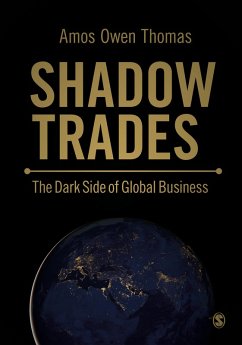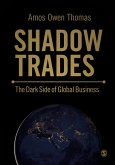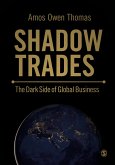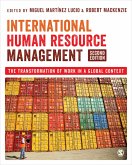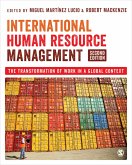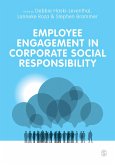Alongside burgeoning global business, which asserts its legality, ethics and social responsibility, there exists a dark side of shadow trades manifesting various shades of legitimacy. Not only do the latter's corrupt practices, dubious supply chains and other illicit operations run in tandem with global business, these borderless trades intersect with economic structures and contribute to systems adopted by corporations, endorsed by neoliberal capitalism, that are often condoned by governments and unwittingly sustained by consumers. In a very real sense, all of us may be implicated in shadow trades through our work, consumption and citizenship.
Even before we can begin to confront and constrain shadow trades, their business models first need to be identified and analysed in all their networked complexity, interconnectivity with global business and embeddedness within the world economy. Numerous hard questions need to be raised around enabling circumstances and responsibilities of stakeholders, as well as the winners and losers resulting from business globalisation and socio-economic inequities within and between countries.
Providing background, evidence and analysis on select exemplars of shadow trades, this book provides graduate students of business, plus scholars in the social sciences, together with practitioners and policymakers, consumer groups and civil society, with an indispensable resource for critical engagement. Only through knowledge gained by research and advocacy for transparency can we begin to shed light on this dark side of global business, enabling all of us to grapple with activism against and collaborative action towards undermining all shadow trades.
Amos Owen Thomas was a Docent / Reader in Marketing and International Business at Stockholm University until his recent retirement
Even before we can begin to confront and constrain shadow trades, their business models first need to be identified and analysed in all their networked complexity, interconnectivity with global business and embeddedness within the world economy. Numerous hard questions need to be raised around enabling circumstances and responsibilities of stakeholders, as well as the winners and losers resulting from business globalisation and socio-economic inequities within and between countries.
Providing background, evidence and analysis on select exemplars of shadow trades, this book provides graduate students of business, plus scholars in the social sciences, together with practitioners and policymakers, consumer groups and civil society, with an indispensable resource for critical engagement. Only through knowledge gained by research and advocacy for transparency can we begin to shed light on this dark side of global business, enabling all of us to grapple with activism against and collaborative action towards undermining all shadow trades.
Amos Owen Thomas was a Docent / Reader in Marketing and International Business at Stockholm University until his recent retirement
Dieser Download kann aus rechtlichen Gründen nur mit Rechnungsadresse in A, D ausgeliefert werden.
International business texts typically focus upon everyday corporate activities and the various political, legal, and cultural environments to which they must adapt. These books do consider illicit practices, such as counterfeiting, that threaten companies, as well as some ethical, social responsibility, and sustainability issues, but generally tilt toward the sunny side of global commerce. In Shadow Trades: The Dark Side of Global Business, author Amos Owen Thomas introduces readers to a wide range of much more controversial, often despicable, business conduct that flourishes on a worldwide scale. Topics include exploitation of migrants and laborers, human organ trafficking, hazardous waste transhipment, the global arms trade, money laundering, and much more. Thomas writing is engaging, and his chapters end with a variety of sources research works, executive books, informational websites, and documentary videos for further study. Shadow Trades will make a nice supplement for international business, management, and marketing classes.
Terrence H. Witkowski, Professor of Marketing and Director, International Business Program, College of Business, California State University, USA
Terrence H. Witkowski, Professor of Marketing and Director, International Business Program, College of Business, California State University, USA

